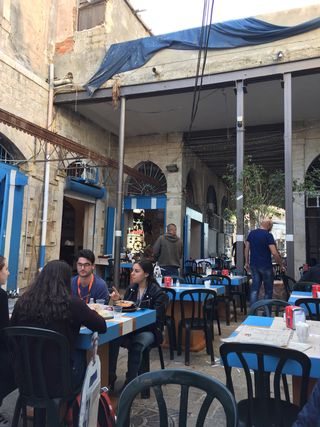Religion
Being at Home in a Troubled World
Can "others" ever feel at home in America and Europe?
Posted July 23, 2019
In the age of social media, it has become more normal to demonize people who are “different."
Through the prism of ever-expanding contemporary white nationalism, "others" are sometimes characterized as sub-human beings whose very presence represents an infestation that must be quarantined or eliminated.
Global intolerance of "others" has become widespread. Recent stories of open intolerance of "others" in America are grim reminders of what social life has become in a society in which Muslims, Jews, African Americans, Latinos, and Native Americans have become the targets of white supremacists.
Mosques have been fire-bombed and defaced. Jewish cemeteries have been frequently desecrated and synagogues now routinely hire armed guards to protect sabbath worshipers. Gunmen have killed African Americans in a Charleston, South Carolina church and Jews in a Pittsburgh synagogue. Police shootings of unarmed African American men are not uncommon. Forcibly separated from their families, Latino children languish like animals in detention center cages.
The details of these troubling atrocities are well known. But in such a heinous climate, both in America and Europe, how can "others"—the non-white population, which now includes Muslims, Jews, Latinos, Asians (south and east), Native Americans, Africans, and African Americans, adapt to a world that denigrates their ethnic origin, their religion, their sexual orientation or their race?

Can "others" ever feel at home in contemporary America?
The concept of home is deceptively simple. Home is much more than the dwelling where you and your family reside. Home is more of a feeling–of unstated peace, of normality, of feeling comfort in your skin. Home is often defined through our senses. It is the smell of baking bread or the aroma of grilled meat spiced in a certain way. Home is reflected in the quality of light, in vistas where the sky meets the horizon, in the bite of the wind in your face, or the intensity of sunlight on exposed skin. Home is about how life is lived—slow, fast, cool and hot (see Jackson, 1995).
In a contemporary America filled with so much divisiveness, how can the aforementioned "others" adjust to a social world in which a shrinking yet still powerful majority makes you feel stressed and unwanted? I cannot speak for other minorities but can reflect directly on my experiences as a third-generation Jew in America. My grandparents, Jews from Latvia (maternal) and Lithuania (paternal) immigrated to America toward the end of World War I. My parents grew up in Jewish enclaves in Washington D.C. They never felt comfortable living among non-Jews. My brother and I also grew up in a Jewish neighborhood. In high school almost everyone I knew was Jewish. That was good for me because non-Jewish classmates sometimes taunted me about my difference—both physical and cultural. My parents had warned me about the pervasiveness of anti-Semitism. They told me I had to be careful. They said that I should not bring too much attention to myself.
As I got older, the sting of anti-Semitism became less intense. In time, I went to college and graduate school and became a university professor of anthropology. Like all people I’ve had my share of disappointments and challenges, but knock on wood, I have a good life, a wonderful family. I live in a nice house. You could say that I feel at home in the world, but that would be too simple. Far in the background of my consciousness, I irrationally fear that there are gun-toting people who wish me physical harm just because I am a Jew.
Can a Jew like me feel at home in contemporary American society?
Given my subject position, I never much thought about being at home in the world until colleagues invited me to present a lecture at Tel Aviv University in 2016. Like many American Jews, I had never been to Israel. Given my objections to the Netanyahu government, I expected to find a violent and deeply racist society. Instead, I felt immediately at ease. At Ben Gurion Airport, the border agent, who was the spitting image of a younger version of my first cousin, looked at me, smiled, and said, “Welcome home.”
Everywhere I went I saw “familiar” faces from my past and present. Could some of these people be long lost relatives? The way people smiled at me on the Tel Aviv University campus and in Tel Aviv neighborhoods created a kind of unspoken bond of kinship. The pace of life, the food, the smells in the street, the movement of people all flowed effortlessly into my being, which filled me with wonder.

I pondered these feelings of connectedness and how they underscored my own insecurities about being an “other” in America. My brief sojourn in Tel Aviv did not convince me to move to Israel or to pledge my allegiance to the Israeli State. Spending time in Israel, though, taught me about the importance of being at home in an imperfect world—in my case, being at home in the United States. Having sensed the existential significance of being at home—even as an "other"—has compelled me to do everything I can (mentoring students and colleagues, presenting public lectures, writing blogs, essays and books) to promote a more inclusive, more egalitarian, and more just America.
In a world saturated with chaos, hate, and division, the task is to create spaces in which more of us feel the wonderful sense of existential comfort and well being that comes with being at home in the world. Is it not our obligation to make sure that we bequeath that comfort to our children and grandchildren?
References
Jackson, Michael 1995. At Home in the World. Durham and New York: Duke University Press.




